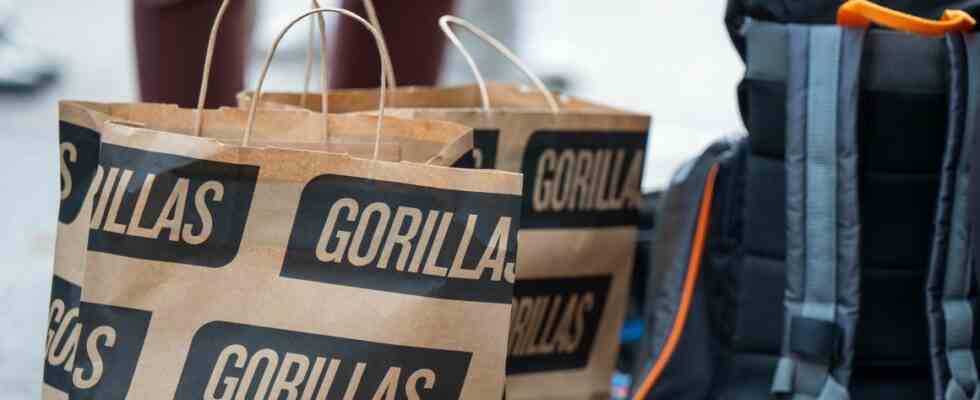In the middle of the Corona crisis, they suddenly appeared: start-ups like Gorillas, Flink or Getir. They set up a dense network of warehouses in the big cities, hired hundreds of drivers and promised to deliver supermarket products such as cold cuts, drinks or frozen food to your home in just a few minutes. Customers can use the app to conveniently order at supermarket prices. The segment is called quick commerce. Demand boomed during the crisis, and investors had plenty of money. But that has long since changed, the market is on the move – but probably far from dead.
“Quick commerce was the topic in 2021 that went through the roof the most in retail,” says Kai Hudetz, Managing Director of the Institute for Retail Research in Cologne (IFH). “Even back then, you had to critically question whether it could be a working business model to bring a single yoghurt pot to your desk in fifteen minutes.” In the meantime, however, this industry is also feeling the effects of the end of the corona restrictions, the effects of high inflation and the war in Ukraine: the demand for online groceries has fallen significantly. According to Hudetz, investors are also more cautious. Some delivery services that have relied on rapid growth are now in trouble. The Berlin start-up Gorillas, for example, only announced a few months ago that it would be cutting hundreds of administrative jobs and recently gave up some locations in North Rhine-Westphalia.
Competitor Wolt actually does its core business with restaurant deliveries. The most recent experiment with supermarket products from their own warehouses has now also ended.
The competitive pressure is enormous in view of the numerous players on the market, because maintaining your own warehouses is expensive. Added to this is the self-confidence of the employees, who are increasingly successful in their fight for better pay, safe working conditions and works councils. Screwing the prices is risky. “As soon as delivery fees are charged, the customer often drives the 300 meters to the supermarket himself and buys what he needs or orders from a cheaper competitor,” says Hudetz.
Nevertheless, companies have little choice. According to Flink, free deliveries are now only offered from a shopping cart size of 50 euros. Everyone has said goodbye to the once ten-minute delivery promise. Gorillas and Flink only advertise that they will be at the door “within minutes”.
The market is consolidating, says trade expert Hudetz, but the offer will not disappear. The growth potential remains too great. “It’s going to be a premium service,” he believes. According to the German Trade Association (HDE), the retail trade made 204 billion euros in sales last year. The online share – which has so far been served by Gorilla, Flink or Getir – was only 2.4 percent.
Well-funded competitors sense growth potential in this respect, despite all the adversities: the delivery group Takeaway (“lieferando”) has just set up a warehouse for groceries for local brands in Berlin-Charlottenburg and wants to supply customers on a test basis. Wolt hasn’t given up the food segment either, merely changing the concept. Instead of setting up an expensive warehouse infrastructure, the company is now cooperating with local supermarkets, from whose branches the goods are picked up and delivered. The large retail chains such as Rewe or Edeka have also been trying their own services for some time. And at Flink they are really self-confident after Rewe and the French retail giant Carrefour have invested in the start-up: “We have cash available,” it says there. The race can go on.

